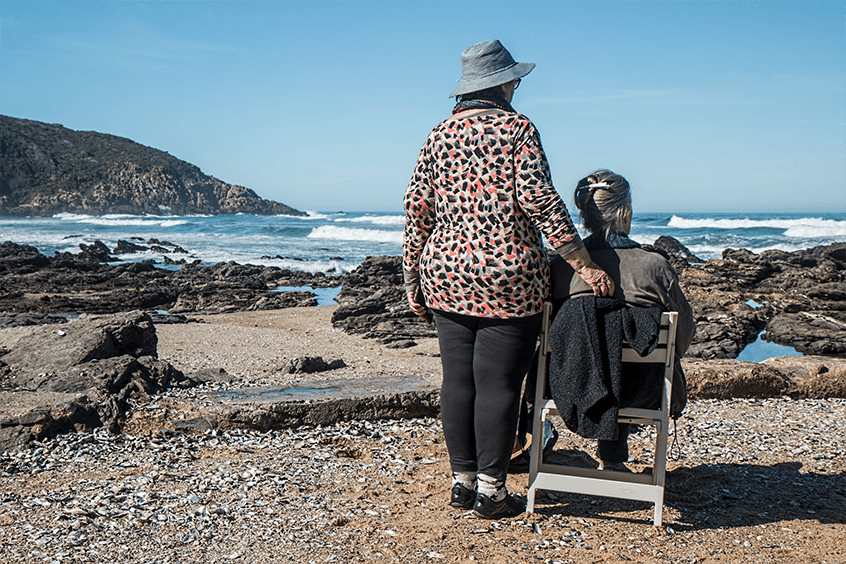All relationships are not created equal. And there is no reason they should be. People in your lives play different roles and your expectations are different for each person. You contribute different aspects of yourself to each relationship and experience varying levels of connection with each person who is a part of your life.
A healthy interpersonal life consists of both strong ties and weak ties. While it may be overly simplistic to place every relationship that you have firmly into one of those categories, most your connections lie somewhere on a spectrum favoring one or the other.
In some cases there may controversy as to what type of relationship you may be in with another person. Rarely is there a perfect balance in the level of connection two people feel towards each other at any given time, but you usually know roughly where you fit into another person’s life. And when you don’t know, you probably feel the urge to sort it out.
Strong Ties
Strong ties are the deep emotional connections that provide you space to share the most intimate parts of your human experience. You don’t require many of these of them but these are the people who you turn to when things fall apart. Sometimes these strong ties develop among family and close friends who hold you in a state of unconditional positive regard.
These connections exists with people who really know you (the good and the bad) and still remain open to connection. In some cases strong ties are dormant and only emerge in a crisis, but often, your strongest ties exist in the relationships wherein you continually invest and build trust. Strong ties are intimate relationships, not necessarily in the romantic sense, but in that they require vulnerability and emotional courage to develop and emotional labor to maintain.
The emotional investment required to create these strong ties make the pain you experience if they break all the more traumatic. And while the investment of emotional energy expended to create the strong connection may have accumulated over years and years, the experience of loss centers around the moment of the break.
What we call “heartbreak” is associated with the loss of a strong tie. The intensity of heartbreak might make you reluctant to open yourself up to the possibility of really deep connection.
Some people respond to heartbreak closing parts of themselves off and only experiencing superficial relationships. They try to place “weak ties” in the place of the missing strong tie but it does not work. No matter how many people are around, a sense of loneliness and isolation can still persist if you are missing an intimate connection.
Weak Ties
Even if strong intimate relationships exist, there are many aspects of your life that fall outside of the interest or capacity of your closest connections. It is important to be a “whole person” outside of your more intimate connections. Many relationships fail when one or more parties fails to maintain their identity outside the parameters of a pair couple.
“All we need is each other” is a fairy tale. Isolation can create stress, not just in individuals, but also in couples or families. It is very difficult to obtain all of the emotional, material, and spiritual resources required to live a full life without access to connections in the community.
Weak Ties are relationships that emerge in communities of share interest or shared experience and major portion of your professional and social life is built around weak ties. These relationships can be very important, however the emotional stakes tend to be lower.
When it is done poorly, relationships based upon weak ties can feel transactional and if either party feels used, then it is unlikely that the connection will survive. But when done well, the give and take of casual friends and associates can help accumulate trust, build reputation, and create social currency that opens up unexpected opportunities.
Building Connections
Strong ties are critical but it requires courage to seek them out, especially if you have experienced loss.
People are irreplaceable, each one a unique divine being. As a result, every relationship is unique. But even if a new intimate relationship is completely unique from one you experience in the past, the new relationship can meet the same needs–just in a different way.
The way you build ties will vary depending upon the phase of life you are in and your personality. But regardless of your situation you have to be open to other people, and generous with your attention.
In a world full of distractions and fractured attention, if you truly listen to someone and demonstrate that you are present with them by making eye contact and engaging with what they have to share with you it goes a long way towards creating an initial connection. And if you are honest and vulnerable in sharing your experiences, you will be the type of person that people want to have interactions with.
You don’t need to connect to everyone, but if you are present, open, and generous the right people will find their way into you circle.
